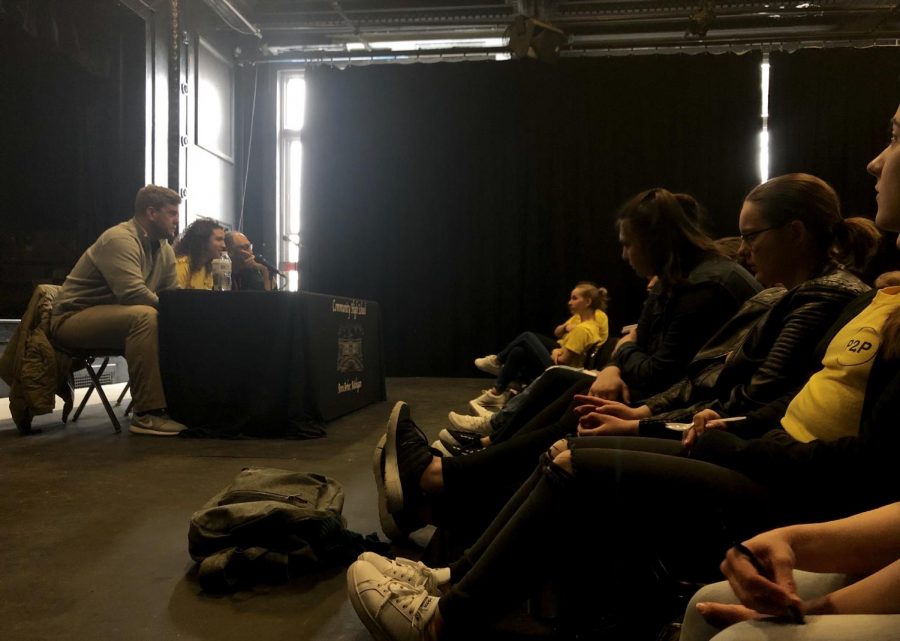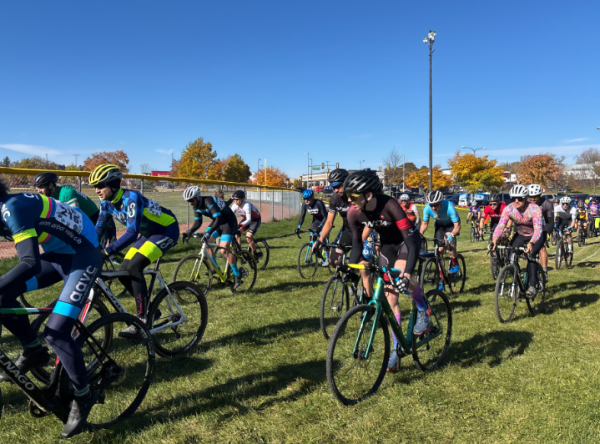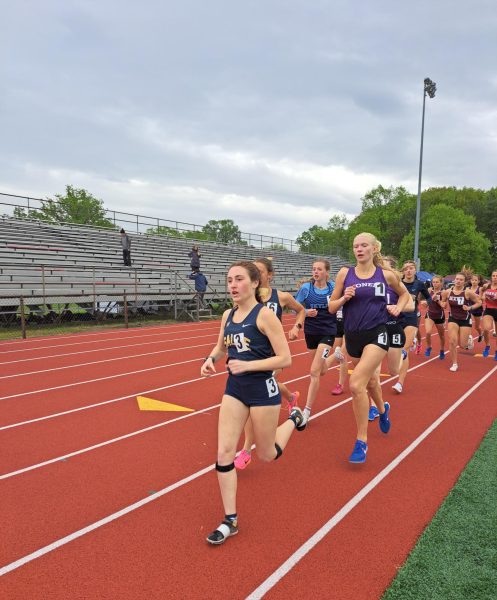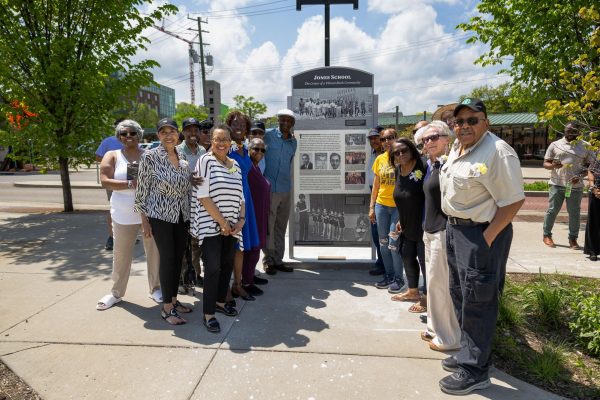The last event to wrap up Depression Awareness Month
Sharing one’s mental health illness and journey with others is a difficult task. But Steve Coron, Community’s art teacher; Andrea Schnell, a Depression Awareness Group (DAG) member at Community; Will Heininger from the UM depression center; Edward Harake, a senior at the University of Michigan; and Traci Carson, a Public Health Ph.D. candidate at U of M, all shared their personal mental illness journeys with the students at Community. This event in the craft theater, put together by DAG, beautifully wrapped up CHS DAG’s month-long campaign.
As each guest speaker shared their stories, they brought different perspectives to the table, making it a diverse discussion.
“Mental illness affects anyone and everyone,” Schnell said. “It does not discriminate at all.”
Schnell’s parents, who are Latino, grew up thinking that depression is something you did not talk about. They did not think it was real. But Schnell was able to convince her parents that what she was going through was real by having her parents talk with her therapist. And she recommends this to anyone going through a similar struggle: Have parents sit down and talk with a professional; make them understand.
Unfortunately, this kind of thinking not only crosses cultural boundaries but gender boundaries as well.
“It’s a lot harder for men,” Schnell said. “And I honestly don’t acknowledge that or think about it enough.”
When Heininger shared his experience with depression, he mentioned his initial reaction was to be tough. At the time, he fell into the stigma that men are not supposed to show any emotion.
“I was 19,” Heininger said. “And I hadn’t really been exposed to enough open-minded people.”
However, that was not the only reason that stopped Heininger from reaching out for help. He was not aware that what he was going through was a medical illness. When he shared his journey with the students at Community, he mentioned a couple of times that if you had a broken limb you would not think twice about going to the doctor and the same should apply for depression and other mental illnesses.
Now, both Schnell and Heininger share their journey with depression through events like these. Schnell recently started going to middle schools to give these talks, and what she enjoys most is the conversations she has with the students after the events.
“It just shows how important it is to talk about mental health,” Schnell said.
Heininger, on the other hand, works at the U of M Depression Center on outreach and education. He either spends his time traveling the country giving these speeches and educating the people he meets about mental illnesses or helping plan conferences.
“It makes me so optimistic for what the world could be like when we’re the adults,” Heininger said.
But Heininger didn’t always know this is what he would be doing.
Sitting on his back porch, drinking beer and looking out into the Ann Arbor skyline with his best friend, Heininger knew that he wanted to share his journey with others. This moment, as well as the reaction Heininger got from sharing his story for the first time at the Depression on College Campuses Conference, made Heininger know it’s what he had to do.
“I don’t think I could feel like I lived my purpose if I didn’t work in this field,” Heininger said.














